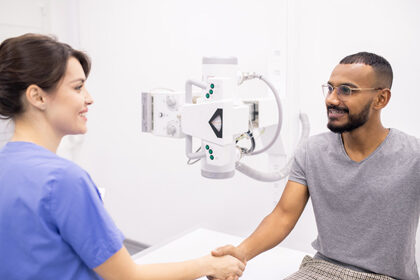
Introduction
Assisted reproduction techniques have revolutionized the way individuals and couples can build their families. Among these techniques, egg donation has emerged as a vital component that has brought hope to those facing fertility challenges. In this comprehensive blog, we will explore the world of egg donation, its significance, the process involved, and the profound impact it has on the lives of intended parents.
Understanding Egg Donation
Defining Egg Donation
The Gift of Life: Egg donation involves a generous donor providing her eggs to help others achieve parenthood.
Biological Connection: Eggs from the donor are used in the IVF process, establishing a genetic link between the donor and the child.
Who Should Consider Using an Egg Donor?
Identifying Candidates
For Women with Fertility Issues: Individuals or couples facing female infertility, premature ovarian failure, or poor egg quality may benefit.
Same-Sex Couples: Egg donation is essential for same-sex male couples or single men looking to have biological children.
The Egg Donation Process
Step-by-Step Guide
Donor Selection: The process begins with selecting a suitable egg donor based on various criteria.
Egg Retrieval: The donor undergoes ovarian stimulation and egg retrieval, while the recipient prepares for the embryo transfer.
Fertilization and Embryo Transfer: Eggs are fertilized with sperm through IVF, and resulting embryos are transferred to the recipient’s uterus.
Finding the Right Egg Donor
Options and Considerations
Agency-Assisted Matching: Many intended parents find egg donors through reputable agencies, which streamline the matching process.
Anonymous vs. Known Donors: Choosing between anonymous and known donors depends on personal preferences and comfort levels.
Important Tests and Evaluations
Ensuring a Healthy Donor
Medical and Psychological Assessments: Donors undergo rigorous evaluations to ensure their physical and mental well-being.
Genetic Screening: Screening for genetic conditions helps reduce the risk of passing on hereditary diseases.
Egg Donation Costs
Understanding Expenses
Varied Costs: Egg donation costs may include donor compensation, medical procedures, and agency fees.
Financial Planning: Intended parents should carefully budget for egg donation, considering both immediate and long-term expenses.
Egg Donation FAQs
Common Questions Answered
Can I choose the ethnicity of my egg donor?: Many agencies offer diverse donor pools to meet individual preferences.
What is the success rate of egg donation?: Success rates can vary but are generally high, especially with young and healthy donors.
Conclusion
Egg donation is a remarkable advancement in assisted reproduction that brings the gift of life to countless individuals and couples facing fertility challenges. It serves as a vital component of modern family-building, offering hope, and the opportunity to experience the joys of parenthood. The process involves careful selection, thorough evaluations, and financial planning, but the rewards are immeasurable. As technology and medical expertise continue to advance, egg donation continues to play a crucial role in shaping the dreams of countless intended parents worldwide.







